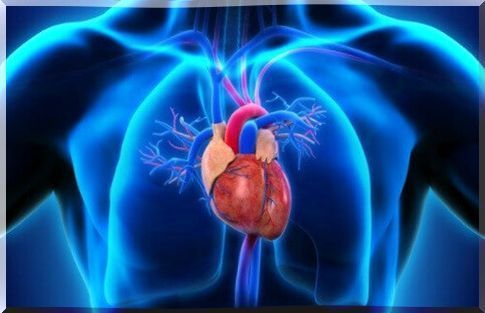Dobutamine: What Is It For?
Dobutamine is a drug with positive inotropic effects that is therefore used for the treatment of heart failure and cardiogenic shock. It is administered intravenously.
Although dobutamine is structurally similar to dopamine and other catecholamines, this drug is a synthetic isopreterenol analog and has different pharmacological properties, including the aforementioned inotropism, chronotropism, and vasodilation.
Unlike dopamine, dobutamine does not affect dopamine receptors, although urine output may increase due to increased cardiac output, for example.
Inotropism and chronotropism?

The circulatory system has a series of fundamental functions for the proper functioning of the body. Among them, we can mention the following:
- Transport and distribute essential substances to tissues.
- Remove metabolic waste.
- Adjust the supply of oxygen and nutrients in different physiological states.
- Corporal temperature regulation.
- Humoral communication.
The heart has a series of characteristics that we must be clear about in order to better understand its functioning and the mechanism of dobutamine. These are:
- Automatism: the heart beats automatically.
- Inotropism: the heart contracts under certain stimuli. The sympathetic nervous system has a positive inotropic effect, therefore, it increases the contractility of the heart.
- Chronotropism: refers to the slope of the action potential. The Sympathetic Nervous System increases the slope, therefore, produces tachycardia. Instead, the Parasympathetic Nervous System slows it down.
- Bathmotropism: the heart can be stimulated, maintaining a threshold.
- Dromotropism: it is the speed of conduction of cardiac impulses through the excito-conductor system. The Sympathetic Nervous System has a positive dromotropic effect, therefore, it increases the driving speed. The Parasympathetic Nervous System has the opposite effect.
- Lusitropism: it is the relaxation of the heart under certain stimuli.
Indications of dobutamine

Dobutamine is a drug used to treat acute heart failure that is potentially recoverable. Some of these are, for example, those that are triggered during cardiac surgery or in cases of septic shock. All these effects are justified by the characteristic inotropic action of this drug.
Dobutamine can also be used in patients suffering from congestive heart failure in order to increase the performance of the heart. It is usually used in cases where the patient needs parenteral nutrition as inotropic support in the short-term treatment received by patients with cardiac decompensation due to a deficiency in myocardial contractility.
On the other hand, it is important to mention that dobutamine is not used in the treatment of ischemic heart disease because it greatly increases the heart rate, which is accompanied by the consequent oxygen demand by the myocardium.
How does dobutamine trigger its effect in the body?
Dobutamine interacts with beta-1-adrenergic receptors, activating them. It also has beta-2 and alpha-1 stimulating effects, but they are minor. Thus, it manages to increase myocardial contractility and stroke volume. Thus, a series of modest chronotropic effects are triggered, resulting in increased cardiac output.
As a consequence of these effects, others are produced at the hemodynamic level, such as a decrease in systemic vascular resistance and ventricular filling pressure. In addition, blood pressure also tends to increase due to increased stroke volume, despite the fact that diastolic blood pressure and the middle artery are normally unchanged.
As we mentioned at the beginning of the article, dobutamine has no effects on dopamine receptors, unlike this neurotransmitter. It also does not cause the release of norepinephrine from sympathetic nerve endings.
Adverse effects of dobutamine treatment

As with any other medicine that is marketed, dobutamine is not exempt from producing side effects. We understand adverse effects as all those undesirable and unintended events that are expected with treatment with a drug.
In this sense, they can occur:
- Ventricular dysrhythmias.
- Arterial hypertension.
- Increased systolic rate.
- Sickness.
- Headache.
- Angina.
- Difficulty breathing.
Conclution
Dobutamine is a drug that is mainly indicated for the treatment of heart failure because of its ability to increase the contractility of the heart, as well as the heart rate. However, it can trigger a series of adverse effects that must be discussed with the doctor when starting treatment with this medicine.
Consult with a professional all the doubts you have about dobutamine and share with them if you are taking any other medication. In this way, complications will be avoided.









